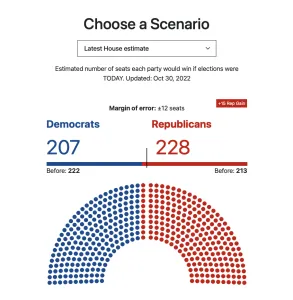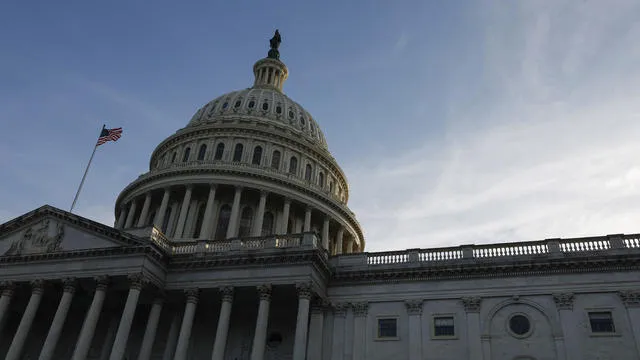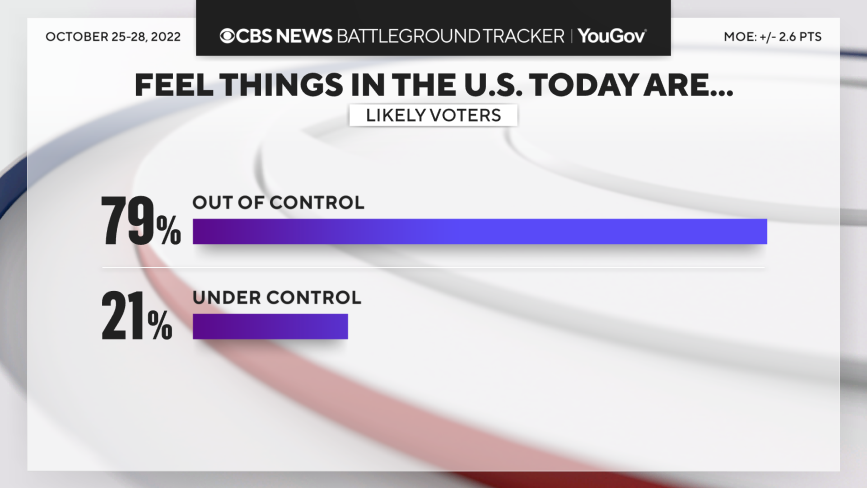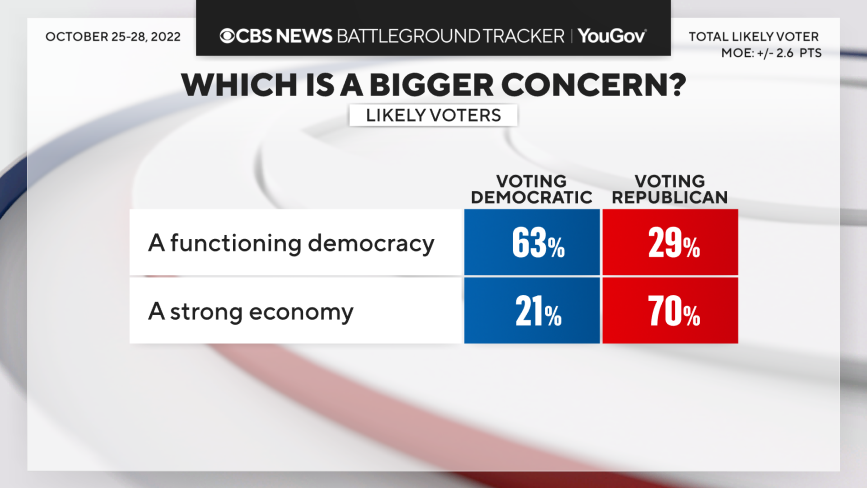(CBS) The election is already underway; millions have voted, and tens of millions more will before Nov. 8. Amid that, eight in 10 likely voters describe things in the country today as “out of control,” as opposed to “under control.”
That doesn’t bode well for the party in power: Republicans are winning those who say “out of control” right now by more than 20 points, though they’re often the ones feeling that way to begin with.
So where do things stand?

So what, politically, does the scenario look like in which Democrats manage to hold the House? We ran our estimates through a turnout model in which younger voters turn out in much higher numbers than our baseline model indicates, bailing Democrats out late in the game. This would run counter to what we’ve seen in recent weeks, both from what young voters tell us in surveys and from early ballot returns, but it isn’t impossible.
It’s more akin to what happened four years ago, with voters under 45 and people of color voting in droves. Since they are heavily Democratic groups, matching 2018’s record setting turnout would stem Republican gains, turning House control into a toss-up around 218 seats. Were this scenario to materialize, it would take days or weeks into November for a handful of close races to settle and reveal the new balance of power.
Then there’s a big-Republican-turnout scenario, which builds off the trend that we have been seeing: both parties motivated, but Republicans even more so. Specifically, there’s a path to a further uptick driven by an Election-Day turnout surge among White voters without college degrees — a group that showed up for Donald Trump in large numbers.
Specifically, we estimate what would happen if this group constituted 45% of the electorate, while White voters with college degrees and Latino voters made up just under three in 10 and one in 10 voters, respectively. The older, Whiter electorate that results would flip even more Democratic seats, pushing the GOP total to about 238. This scenario, if it emerges, would likely be visible earlier on election night.
What’s at stake in this election?
With the economy and country’s direction so widely seen as bad, recent history would suggest a large midterm loss for the governing party. But then these aren’t typical times for the nation. And when it comes to what’s at stake this year, there are dramatic differences between parties.
We asked simply what concerns you more: whether the U.S. will have a strong economy, or have a functioning democracy.
The nation is closely split. That doesn’t mean people don’t want both. But those more concerned about democracy are backing Democrats, and Republicans draw most of those more concerned about a strong economy, echoing the messages of the parties’ campaigns.
Tension at the polling place?
Even as they lead this contest, we see the sentiments driven by the ongoing Republican suspicion of the voting process since 2020.
A big majority of Republicans support the idea of private citizens challenging elections officials as they process and report vote counts on election night.








